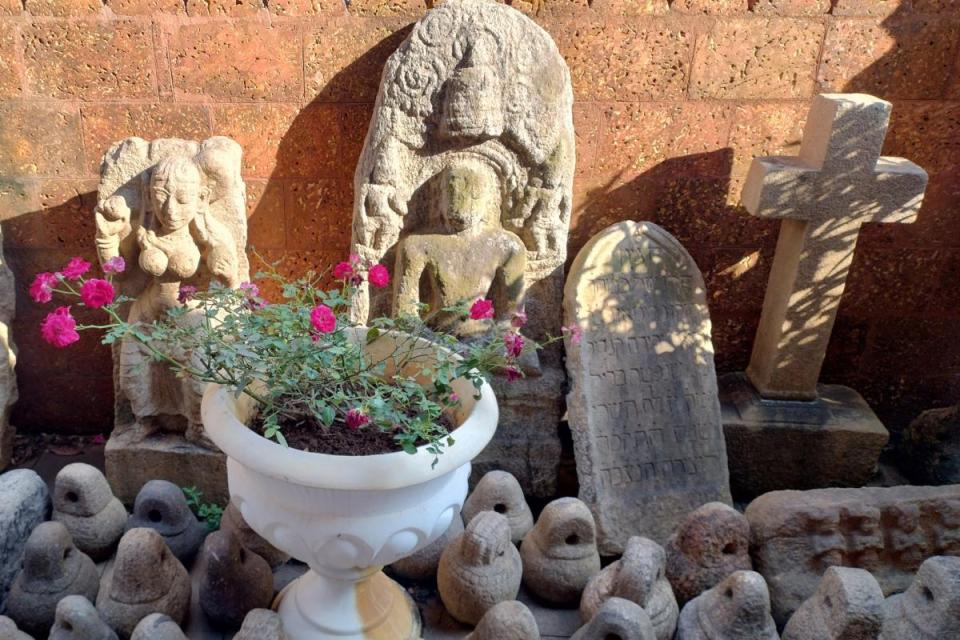As I take office as the Director of the CEU Center for Religious Studies, I extend a warm welcome to students and scholars across our university who are drawn to the academic study of religion. Diverse personal experiences and the methods of multiple disciplines shape our reflections on religion, and I hope that the Center will serve as a home for the most varied intellectual curiosities.
My snapshot from a recent field trip to India captures the multi-religious heritage preserved in a corner of the Kerala Folklore Museum in Thevara. The objects in this image illustrate that religions are saturated with textuality, materiality, embodied and gendered expressions, and overt as well as covert symbolism.
In the twentieth century, critiques often imagined religious traditions as confined to an isolated corner of social life, mere props concealing social and economic interests. More recent scholarship, by contrast, has recognized the more complex foundations of religious practices and ideas. Even the modern analytical concept of "religion" deserves critical scrutiny, especially when it risks creating such segregated conceptual corners. At the same time, it has the advantage of syztematically connecting philosophical, cultural, political, and anthropological perspectives. Religious Studies is a school of interdisciplinary thinking with the potential to enrich both the humanities and the social sciences.
Since its founding in 2005—twenty years ago—the CEU program in Religious Studies has aimed to understand religion both historically and as a contemporary phenomenon. Meanwhile, the Center has become an interdepartmental unit in which the social and political sciences share forces with historical and philological scholarship. After the fall of the Iron Curtain, scholars were thrilled to rediscover the historical entanglements of Western and Eastern Christendom, Islam, and Judaism. Progressively, our teaching and research has extended beyond the Abrahamic triad, offering classes and lectures on the cognitive formation of religious consciousness, witchcraft and esotericism, political theology and civil religion, secularism and post-secularity. Thanks to the outgoing Director’s collaboration with colleagues in Austria and beyond, we have also expanded our teaching on the religions of South Asia.
I invite all CEU students to join our lectures and excursions and eventually to pursue the Advanced Certificate in Religious Studies alongside their primary degree programs. I hope the community that has developed at our Center will serve as an inspiring environment for your studies, just as your work and your questions will be a source of inspiration for your teachers and peers.
Warm regards,
Carsten Wilke
